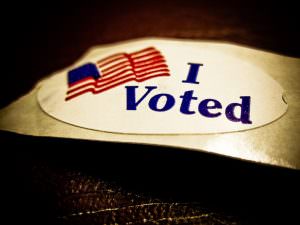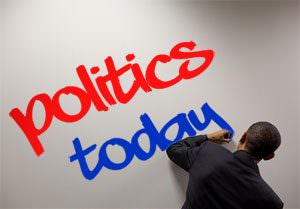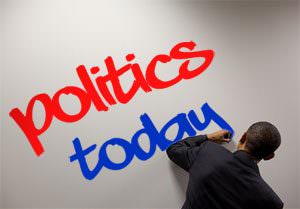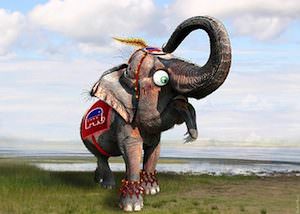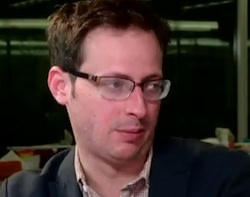A Voting Issue That Isn’t (Video)
When Michelle Obama called voting rights "the movement of our era" in a speech Saturday night, she didn't specifically mention the Republican-led crusade for restrictive voter identification laws. She didn't have to.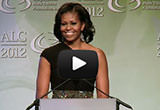
When Michelle Obama called voting rights “the movement of our era” in a speech Saturday night, she didn’t specifically mention the Republican-led crusade for restrictive voter identification laws. She didn’t have to.
Her audience at the Congressional Black Caucus Foundation’s annual gala dinner fully understood the context. It’s hard to believe that in this day and age, the right to vote is once again under assault from those who would prefer to keep minorities, the poor and the elderly away from the polls. But here we are.
Let’s be clear: Voter ID laws are not a solution to the “problem” of voter fraud. There is no problem, or at least no problem that would be solved by voter ID. Proponents should be able to point to troubling instances of voter-impersonation fraud, which is the only kind that would be prevented by the new laws. But they can’t. For all intents and purposes, this kind of fraud simply does not happen.
What did happen in 2008 was that African-Americans, Hispanics and poor people — traditional Democratic Party constituencies — voted in unusually large numbers. And what happened in 2010 was that Republicans took control of more statehouses and set out to reshape the electorate and make it GOP-friendly.
Not coincidentally, this voter ID campaign has been particularly intense in swing states such as Florida, Ohio and Pennsylvania. Invariably, advocates cloak the restrictive new measures in pious-sounding rhetoric about “the integrity of the voting process.” This sounds uncontroversial — who’s against integrity? — until you weigh the laws’ unconscionable costs against their undetectable benefits.
“But you need an ID to do a lot of things, like board a plane,” advocates say. Unlike commercial air travel, however, voting is a constitutionally protected right. To infringe or abridge that right — for no demonstrable reason — should be considered a crime against democracy.
Attorney General Eric Holder has vowed not to “stand by and allow the voting rights of American citizens to be impinged by specious arguments and by those who seek naked political advantage.” The Justice Department refused to allow South Carolina — a state subject to the strictest provisions of the Voting Rights Act — to enact a new voter ID law on grounds that minorities would be unduly impeded from exercising their right to vote. The state challenged that decision in court, and final arguments in the case were heard Monday.
Minorities, poor people and seniors are less likely than other Americans to have government-issued identification such as a driver’s license — and more likely, for various reasons, to have difficulty obtaining an acceptable ID. They might live far from the nearest motor vehicles department office, for example, and lack transportation. In the case of some older African-Americans born in the South under Jim Crow segregation, they might not even have a proper birth certificate of the kind needed to obtain a driver’s license or state ID card.
For Hispanics, perhaps more important than voter ID laws are purges of the voter rolls — which are being conducted in some states, allegedly to make sure that non-citizens do not vote — and proof-of-citizenship requirements for voter registration.
What could be more innocent, right? But proponents of these measures know that some naturalized citizens, who have every right to vote, will see such challenges as intimidating. The Advancement Project claims that up to 10 million Hispanics could be deterred from registering or voting, and while this is a very high estimate — the assumption appears to be that Hispanics, absent the intimidation, would be much more likely to vote than other groups — it seems clear that there will be some impact on participation.
And this, really, is the issue. The problem in this country isn’t too many people voting, it’s too few. We should be making it easier for people to vote, not harder, and we shouldn’t be imposing requirements that have the same effect as a poll tax.
Courts may block some of the worst of the new restrictions, but some have already passed muster and gone into effect. These barriers can be overcome, however, with determination and perseverance.
“We cannot let anyone discourage us from casting our ballots,” the first lady said Saturday. “We cannot let anyone make us feel unwelcome in the voting booth. It is up to us to make sure that in every election, every voice is heard and every vote is counted.”
Indeed, it is up to us. Get registered. Get out and vote.
Eugene Robinson’s e-mail address is eugenerobinson(at)washpost.com.
© 2012, Washington Post Writers Group
Your support matters…Independent journalism is under threat and overshadowed by heavily funded mainstream media.
You can help level the playing field. Become a member.
Your tax-deductible contribution keeps us digging beneath the headlines to give you thought-provoking, investigative reporting and analysis that unearths what's really happening- without compromise.
Give today to support our courageous, independent journalists.

